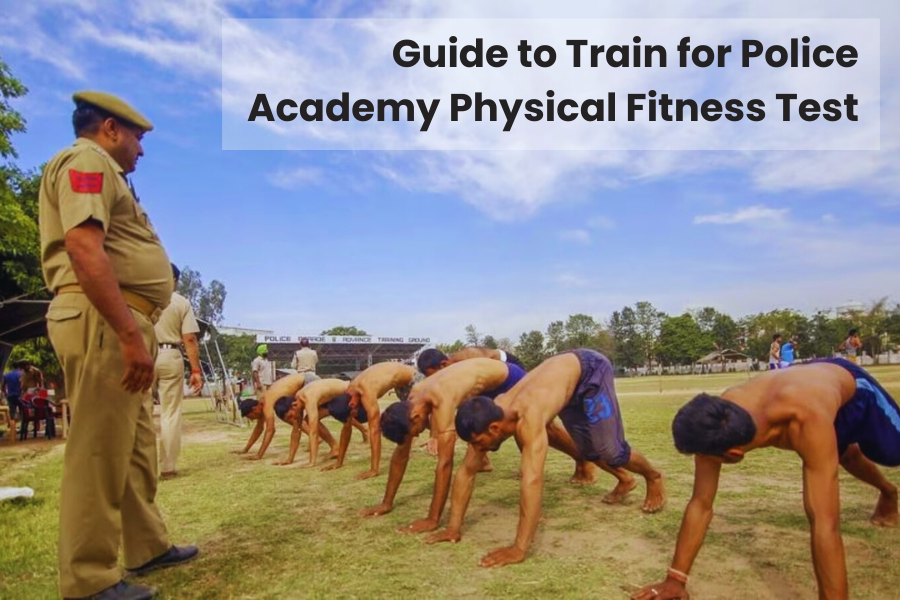Read Our Latest Blogs
Read about science-backed fitness facts, healthy eating habits, workout tips and tricks, nutritional foods, and more. Your one-stop shop to stay updated with in-vogue fitness trends.


The journey of defence aspirants is replete with adventures, challenges, pride, and contentment. One of the most prestigious and respected professions, a career in defence requires keeping oneself in shape and elevating versatility in terms of physical and mental characteristics. A well-known fact, the journey of defence aspirants commences with cracking the defence examination by meeting defense physical training standards that requires top-notch physical and mental fitness. To multiply their chances of getting selected, aspirants leave no stone unturned in enhancing their physical fitness to adapt to the rigorous training routine and perform their military duties successfully.
While it is significant that defence aspirants consistently engage in physical activities that enhance their capabilities to withstand laborious training sessions, at the same time, it is also crucial to develop a proportionate routine that involves adequate rest and a balanced nutritional diet. Taking sufficient rest is as consequential as indulging in physical training, as it helps the body heal, recover, and repair the damages to be back in its healthy form. Thus, rest and recovery are two prime elements to incorporate in the defence training routine to give one's best performance & enhance overall fitness.
Since defence aspirants fall on the higher end of the fitness spectrum, the period they dedicate to allowing their bodies to recuperate after an intense exercise regimen should be carefully scheduled. It is because adequate rest & recovery periods are crucial to help the body rejuvenate and achieve fitness objectives. The nuances of 'rest & recovery' might be subjective, but the goal is the same; healing & high performance.
When we talk about rest periods, it is not equivalent to putting your hands up and halting activities for good. It simply equates to reducing the intensity of workouts by 50 to 70% and practicing low-intensity workouts, including running, swimming, and cycling, at a slower pace. In addition, aspirants can also partake in leisure activities, such as listening to light music, yoga, fishing, painting, or anything that captivates their interest and makes them feel at ease. Furthermore, what many people are not aware of when they initiate their defence training is the crucial role sleep plays in the optimal performance of the candidates. So, aspirants who prefer to sleep during their recovery period might develop better combat effectiveness than those who are sleep-deprived and function on short sleep.
The purpose behind consistent and rigorous Indian army-inspired fitness exercises is for defence aspirants to push their boundaries and go beyond their current fitness levels. The resting period also contributes to the same purpose by elevating the healing process and helping the body maintain its healthy form. It is a significant part of progress, vital for achieving optimal results and maintaining physical, mental, and emotional health.
While engaging in physical exercises, the human body produces cortisol (a hormone produced by the adrenal glands) due to physical stress. This level is even higher in defence aspirants due to the rigid nature of their physical fitness routines. Increased cortisol levels can give rise to symptoms such as high blood pressure, irritability, weight gain, muscle wasting, and more. Hence, recovery periods are necessary to lower the production of cortisol and help the body mitigate the impacts of exertion and fatigue.
The physical activities associated with meticulous physical fitness routines lead to microscopic tears in muscles that can hinder an aspirant's journey to accomplish their physical fitness goals. Thus, with the aid of adequate rest & recovery period, the body can re-build and strengthen the damaged muscle fibers, reduce inflammation, replenish muscle glycogen (muscle energy), and remove metabolic wastes (left-over substances, such as sulfates, salts, nitrogenous wastes, etc., which cannot be used by the body).
Overtraining leads to repetitive strain on the body, which increases the risk of long-term injuries. The consequences of overtraining are challenging to recover from and lead to mental and emotional exhaustion. Hence, by resting for adequate amounts of time, aspirants can prevent the detrimental effects of overtraining, such as a weak immune system, burnout, permanent fatigue, increased risk of injuries, and poor physical performance.
Physical exercises impose stress on bodies and lead to soreness, tension, pain, spasms, etc. The rest period allows the body to transform to adapt to stress and become efficient and prepared for future endurance requirements. However, at the same time, adapting to too much stress could be dangerous as there is a limit to how much the body can handle. Hence, the rest periods also prevent the body from breaking down and suffering muscle damage and injury from over-adapting to stress.
While it is significant to stick to the army-inspired workout routine, such as participating in 1600-meter defense training routine, it is also crucial to listen to bodily needs and dedicate time to rest and recovery periods. Recovery periods facilitate healing and strengthen the body to deliver desirable results. To make the most of your fitness routines, take adequate rest and allow yourself to recuperate from within. Always remember that resting is the best gift you can give yourself to achieve what you have aimed for.
Good luck, soldier!

Entering into the police force and contributing to safeguarding the citizens and maintaining law and order is an honor t...
19 July 2023
AI is here to stay, and it's already being used in the fitness industry. In fact, many people are already making use of...
21 September 2022
सेना भर्ती के लिए वजन का नियंत्रण में होना बहुत आवश्यक है, क्योंकि तय मानकों के अनुसार लंबाई बढ़ाई नहीं जा सकती, लेकिन व...
29 February 2024